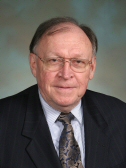Earlier this year, the Legislature passed a bill creating the Puget SoundCorps within the Washington Conservation Corps. This new subgroup of the WCC will provide paid job opportunities for youth and returning military veterans on projects to help restore the health of Puget Sound.
Now, the state Department of Ecology and the Department of Veterans Affairs have put out a joint press release encouraging returning veterans to apply for the first SoundCorps crew, which is forming now. Not only do veterans receive wages for working on SoundCorps projects, but they also receive a $5,550 AmeriCorps Education Award that can be used to pay off student loans or toward future tuition expenses.
Youth and returning veterans are two groups that are having a particularly difficult time finding jobs in the current tough economy. State Representative Steve Tharinger, who sponsored the original legislation, hopes the chance to work on Sound restoration projects will help launch conservation and natural resource-related careers for those currently looking for work.
The DOE announced last month that it would be hiring 245 people for one-year WCC positions that will begin in October.
To read this blog post
in Spanish, please
go here.







